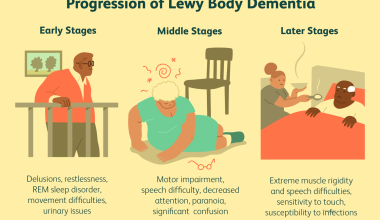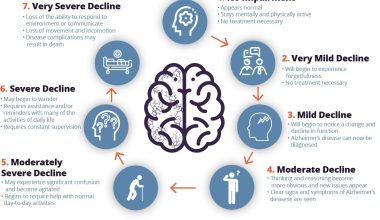As an Amazon Associate, I earn from qualifying purchases
Alzheimer’s Research UK is the UK’s leading dementia research charity. It funds scientific studies to find ways to treat, cure, and prevent Alzheimer’s disease.
Alzheimer’s Research UK plays a pivotal role in pushing the boundaries of our understanding of dementia, focusing on breakthrough research. Dedicated to defeating dementia, the organization invests in pioneering work to bring about new treatments and ultimately a cure. Emphasizing the urgent need for progress, Alzheimer’s Research UK also campaigns for policy change and greater public understanding and involvement.
With a strong commitment to innovation and collaboration, the charity empowers researchers to explore novel avenues in Alzheimer’s disease and related dementias. They are relentless in their quest for knowledge, improving the lives of those affected by dementia now and in the future.
The Quest For Clarity In Alzheimer’s Research
Alzheimer’s Research UK is on a mission. This mission seeks one thing: understanding. The disease clouds minds. It erases memories. Families feel its shadow. But here, scientists toil for answers. For them, every clue unravels part of a larger mystery.
The challenge is immense. Alzheimer’s is complex. But the resolve to clear the fog of this condition is steadfast. Discovering causes, improving diagnoses, and finding that cure remains the beacon of hope.
Pioneering Studies And Their Significance
Research breakthroughs define the journey. Teams across the UK examine the disease from every angle. They look at genes, lifestyle and brain changes. Here’s what they are achieving:
- New test methods shed light on early detection.
- Genetic insights reveal who might be at risk.
- Trials for drugs point to potential treatments.
These studies are proving crucial. They give us steps towards a future without Alzheimer’s.
Mapping The Funding Landscape
We cannot journey without resources.
| Funding Source | Role in Research | Impact |
|---|---|---|
| Government Grants | Backing large-scale studies | Sustains foundational research |
| Charitable Donations | Supporting innovative projects | Drives groundbreaking discoveries |
| Private Investments | Funding targeted research | Accelerates clinical trials |
Funding fuels progress. Each source plays a part.
No advance is minor. Every penny pushes the boundaries of our understanding. We hold onto hope, thanks to this diverse support network.

Credit: www.alzheimersresearchuk.org
Milestones In Alzheimer’s Research
Milestones in Alzheimer’s Research trace an inspiring journey of scientific discovery. This journey reveals how dedication and collaborative efforts over the years have shed light on Alzheimer’s disease. The research undertaken has led to significant breakthroughs. These breakthroughs fill the pages of medical history with hope for millions affected globally. Let’s explore the evolution of Alzheimer’s research.
From Early Discoveries To Recent Advances
The battle against Alzheimer’s began over a century ago. Alois Alzheimer, the namesake of the disease, first described it in 1906. Since then, numerous milestones have punctuated this complex field. Here are a few key moments:
- 1960s: The cholinergic hypothesis suggested a link between acetylcholine and Alzheimer’s.
- 1980s: Introduction of the first Alzheimer’s disease assessment scale.
- 1990s: The amyloid hypothesis brought attention to beta-amyloid plaques in brains.
- 2000s: Genetic factors, such as the APOE4 allele, were linked to an increased risk.
- 2010s: Advances in imaging technologies allowed for early detection of brain changes.
- 2020s: Focus shifted towards understanding the role of the immune system and lifestyle factors.
These discoveries paved the way for recent advances. The current research focuses on targeted treatments and prevention strategies.
Key Research Papers Making Waves
Some research papers stand out in the Alzheimer’s community. They’ve provided key insights advancing our understanding of the disease. Here are just a few:
| Year | Title | Significance |
|---|---|---|
| 2006 | Alzheimer’s Disease: The Challenge of the Second Century | Reflected on a century of research and sparked future study directions. |
| 2011 | Guidelines for the neuropathologic assessment of Alzheimer’s disease | Established standards for diagnosing Alzheimer’s via brain tissue analysis. |
| 2018 | Amyloid β and Tau cooperate to cause reversible behavioral and transcriptional deficits in a model of Alzheimer’s disease | Shed light on how amyloid and tau proteins interact in Alzheimer’s development. |
These papers contribute to a wider understanding of Alzheimer’s. They have the potential to shape future treatments and prevention methods.
Innovations In Detection And Diagnosis
Alzheimer’s Research UK leads the charge in the fight against dementia. Pioneering advancements are key. Experts around the world are focusing on developing new methods. These methods catch Alzheimer’s early. Early detection can change lives. It allows patients to plan and manage their health effectively. Innovative techniques are giving hope to millions. In this post, we’ll explore the cutting-edge technologies. They are shaping the future of Alzheimer’s detection and diagnosis.
Emerging Technologies And Techniques
Breakthroughs in medical technology are occurring rapidly. These breakthroughs are transforming how we detect Alzheimer’s. Innovative tools such as brain imaging software and blood tests spotlight the disease earlier than ever before. Scientists are researching biomarkers in body fluids. These may reveal signs of Alzheimer’s. This process involves analyzing proteins and other substances. New computer algorithms help interpret complex brain scans. This unlocks vital information. Quicker, non-invasive tests are in development. They look to radically simplify the diagnosis process.
- Advanced PET scans detect amyloid plaques
- AI enhances pattern recognition in brain scans
- Simple blood tests may soon identify Alzheimer’s biomarkers
Enhancing Accuracy And Early Intervention
Accuracy in Alzheimer’s diagnosis is crucial. The correct diagnosis ensures patients receive the right support. Early intervention can slow the disease’s progression. Smart technology such as wearable devices monitor patient symptoms. They provide valuable data about cognitive decline. Genetic testing plays an important role. It identifies individuals at higher risk. With tailored treatment plans, we can protect brain health for longer.
| Technique | Purpose | Impact |
|---|---|---|
| Neuroimaging | Spot early brain changes | Timely treatment initiation |
| Cognitive testing | Evaluate mental function | Track progression |
| Genetic profiling | Assess risk levels | Preventive care |
This exciting era in Alzheimer’s research marks a shift. We now view this disease with a lens of prevention. The focus sharpens on early and precise diagnosis. Thanks to the bold strides made by Alzheimer’s Research UK and partners, a future without Alzheimer’s appears brighter. Better detection and diagnosis mean better lives for those affected.

Credit: www.facebook.com
Paving The Way For New Treatments
Alzheimer’s research in the UK shows incredible promise. Scientists and researchers focus on finding new treatments to slow, stop, or cure the disease. Breakthroughs could change millions of lives. The journey involves innovative drug trials and holistic approaches, looking at lifestyle factors too. Let’s explore some of the most exciting avenues in Alzheimer’s treatment research today.
Promising Drug Trials
In the quest to treat Alzheimer’s, drug trials play a vital role. Researchers test new drugs that aim to halt disease progression. These trials provide hope for future treatment options. Let’s dive into details about recent drug trials and their results.
- Aducanumab: Targets amyloid plaques in the brain and may slow down disease progression.
- Lecanemab: Another drug that attacks amyloid, with promising Phase 2 results.
Non-pharmaceutical Therapies And Lifestyle Factors
Beyond drugs, lifestyle changes and therapies matter too. These non-drug treatments focus on maintaining brain health and function. A few are listed below:
- Cognitive Training: Exercises to boost memory and thinking skills.
- Physical Activity: Regular exercise helps maintain brain health.
- Diet Changes: Diets rich in fruits, vegetables, and fish may reduce Alzheimer’s risk.
- Social Engagement: Staying socially active supports brain health.
- Sleep Hygiene: Quality sleep helps clear brain toxins linked to Alzheimer’s.
The Impact Of Breakthroughs On Patients And Families
Alzheimer’s disease brings significant challenges to patients and their families. With every new research discovery, hope sparks for better treatments and care. Breakthroughs can mean the difference between despair and optimism.
Personal Stories Of Hope
Pioneering research by Alzheimer’s Research UK brings light into lives touched by Alzheimer’s. Patients share uplifting stories about experimental treatments slowing disease progression. Families tell of newfound hope.
- Improved symptoms restoring patient independence.
- New drugs potentially halting memory loss.
- Gene therapies offering glimmers of a cure.
Shifting The Paradigm Of Care And Support
Scientific triumphs transform care approaches. Quality of life is at the forefront. Caregivers and healthcare systems adopt strategies prioritizing patients’ dignity and family support.
| Before Breakthroughs | After Breakthroughs |
|---|---|
| Limited treatment options | Personalized medicine approaches |
| Less community support | Increased support networks |
| One-size-fits-all care | Tailored care plans |

Credit: www.alzheimersresearchuk.org
The Future Landscape Of Alzheimer’s Research
Imagine a world where Alzheimer’s is no longer a life sentence. Research in the UK is paving the way for this reality. The future of Alzheimer’s research is bright with promising developments. Constant innovations offer hope for the treatment and prevention of this condition.
Potential Game-changers On The Horizon
Breakthroughs in Alzheimer’s research emerge regularly. These potential game-changers could redefine our approach to the disease:
- Biomarker advancements: Scientists are focusing on early detection. New biomarkers in blood tests could spot Alzheimer’s before symptoms appear.
- Genetic discoveries: Research on genes helps us understand risks and develop targeted treatments.
- Drug developments: Novel medications aim to slow or halt disease progression, moving beyond just symptom management.
- Tech integration: Wearables and AI could monitor cognitive health and provide real-time data.
The Importance Of Continued Support And Advocacy
The quest for a cure is an ongoing battle. Continued support and advocacy are crucial:
- Funding fuels progress: Investment in research translates to advanced studies and clinical trials.
- Awareness drives action: Greater public knowledge leads to increased research participation and support.
- Patient advocacy: Voices of those affected guide research priorities and policy changes.
Together, we can transform the landscape of Alzheimer’s research. Your support makes the difference in this crucial fight.
Frequently Asked Questions For Alzheimers Research Uk
Is Alzheimer’s Research Uk A Good Charity?
Alzheimer’s Research UK is a reputable charity dedicated to funding dementia research. It receives positive reviews for its impactful work and transparency in operations.
What Is The Latest Research For Alzheimer’s In 2023?
The latest 2023 Alzheimer’s research focuses on early detection biomarkers and potential new treatments targeting beta-amyloid and tau proteins. Scientists also explore genetic factors and lifestyle interventions to prevent or slow disease progression.
Is There A Breakthrough Cure For Alzheimer’s Uk?
As of now, there is no breakthrough cure for Alzheimer’s in the UK. Ongoing research continues to seek effective treatments.
What Are 7 Things That Activate Alzheimer’s?
Seven factors that may contribute to triggering Alzheimer’s include genetic predisposition, advancing age, poor heart health, head trauma, unhealthy diet, lack of exercise, and insufficient mental stimulation.
Conclusion
Alzheimer’s research in the UK is pushing forward, offering hope and potential breakthroughs. The diligent efforts of scientists and the support of the community are key. Every discovery brings us a step closer to understanding and conquering this disease. Let’s keep the momentum going.
Your involvement could make all the difference for future generations.
As an Amazon Associate, I earn from qualifying purchases






